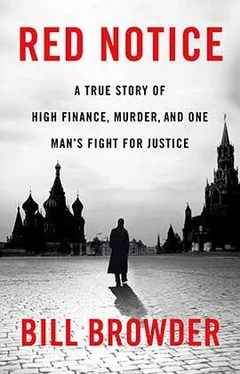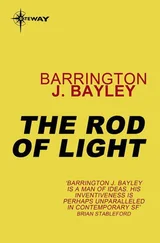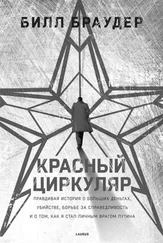I went to a Trammell Crow cocktail reception. I felt so out of place that I curled my toes in my shoes as smooth-talking, good-looking Texans slapped each other on the back and shot the shit about baseball, big money, and real estate development (which was Trammell Crow’s business).
Then there was the Drexel Burnham Lambert reception where I tried to stay awake as a team of balding bond salesmen with fancy suits droned on about the thrilling world of high-yield bond trading in their Beverly Hills office.
I thought, No, no, and no thank you .
The more I went to these things, the more out of place I felt, and one interview in particular drove it home for me. It was for a summer-associate job at JP Morgan. I didn’t particularly want to work there, but how could I not interview for a job at JP Morgan, one of the top firms on Wall Street?
I went into a small room at the career-management center and was greeted by two tall, square-jawed, broad-shouldered men in their early thirties. One was blond, the other brown-haired, and both wore monogrammed, button-down shirts, dark Brooks Brothers suits, and red suspenders. As the blond one thrust his hand forward, I noticed an expensive-looking Rolex. They each handed me their business card from a small stack on the desk. Their names were something like Jake Chip Brant III and Winthrop Higgins IV.
The interview began with the most standard question: «Why do you want to work at JP Morgan?» I considered answering, Because you invited me and I need a summer job , but I knew that’s not what I was supposed to say. Instead I said, «Because JP Morgan has the best attributes of an investment and commercial bank, and I think that combination is the most compelling formula for success on Wall Street».
I thought, Did I really just say that? What the hell does that even mean?
Chip and Winthrop didn’t like my answer either. They carried on with some more standard questions and I batted them back with some more similarly insipid answers. Winthrop finished with a softball question, offering me a way to find some common ground. «Bill, can you tell me what sports you played in college?»
This was an easy one — I hadn’t played any sports in college. I was such a nerd that I barely had time to eat and go to the bathroom, let alone play a sport. I said flatly, «Well, none, really… but I like skiing and hiking», hoping that those sports were cool enough for these two guys.
They weren’t. Neither Chip nor Winthrop said another word or bothered to look up from the stack of résumés. The interview was over.
As I walked out of the building, I realized that these guys didn’t care what I said. All they wanted to determine was whether I «fit» the JP Morgan culture. I clearly didn’t.
I made my way to the cafeteria, feeling awkward and dejected. I stood in line, got some food, wandered to a table, and ate distractedly. As I finished my sandwich, my best friend, Ken Hersh, walked in wearing his suit, which was a sign that he too had just gone to some job interview.
«Hey, Ken. Where’ve you been?» I asked.
He pulled out a chair. «Just interviewed with JP Morgan».
«Really? You must have met Chip and Winthrop too. How’d it go?»
Ken laughed at my nicknames and shrugged. «Not sure. It wasn’t going very well until I told ‘Chip’ that he could use my polo ponies at the club in the Hamptons this summer. Things turned around very nicely from there». Ken smiled.
He was a short, middle-class Jewish guy from Dallas, Texas. The closest he’d ever been to polo ponies was seeing them on the Ralph Lauren logo at the Galleria mall in Dallas. «How'd bout you?» [1] This is the same Ken Hersh who went on to run Natural Gas Partners, one of the most successful energy private-equity firms in the world.
«You and I will be working together, then! I know I’ll get the job for sure since I told ‘Winthrop’ I’d take him sailing on my skiff at the Kennebunkport yacht club».
Neither Ken nor I got an offer, but from that day forward, Ken called me Chip and I called him Winthrop.
After the JP Morgan experience I couldn’t stop wondering why I subjected myself to being rejected by the Chips and Winthrops of the world. I wasn’t like them and I didn’t want to work for them. I had chosen this direction in life in reaction to my parents and my upbringing, but I couldn’t escape the fact that I was still a Browder.
I then started looking for jobs with some type of personal relevance. I went to a lecture by the head of the United Steelworkers union and loved it. As I listened to him talk, I heard the voice of my grandfather, a man with white hair and a mustache whom I fondly remembered sitting in his study, surrounded by books, the sweet smell of pipe tobacco infusing everything. I was so inspired that after the speech I approached the man and asked if he would hire me to help the union negotiate with its exploitative corporate employers. He thanked me for my interest, but said that they only employed steelworkers in the union’s head office.
Undeterred, I looked at other aspects of my grandfather’s life that I might emulate and came up with the idea of Eastern Europe. He had spent an important part of his life in the Soviet Bloc, and his experience there had catapulted him into global significance. If that’s where my grandfather had carved out his niche, then maybe I could too.
In the midst of this soul-searching, I had also started lining up real job offers in the event that my search for utopia didn’t bear fruit. One was with the Boston Consulting Group in its Midwest headquarters in Chicago. I was from Chicago and had worked in consulting at Bain, which meant that I checked all the right boxes for its new recruits.
Only I didn’t want to go back to Chicago, I wanted to get out and see the world — more than that, I wanted to work in the world (what I really wanted was to be Mel Gibson in The Year of Living Dangerously , my favorite movie). In an effort to get me to accept its offer, BCG flew me to Chicago for a «selling day», where I was joined by other recruits. We were subjected to meeting after meeting with bright-eyed first- and second-year consultants who regaled us with tales of their exciting lives at BCG. It was nice, but I wasn’t buying it.
My last meeting was with the head of the office, Carl Stern. This was meant to be the end of the process, where I would shake the big man’s hand, thank him profusely, and say, «Yes».
When I entered his office, he said warmly, «So, Bill, what do you think? Will you join us? Everyone here likes you a lot».
I was flattered, but there was no way I could accept. «I’m really sorry. Your people have made me feel very welcome, but the fact is I can’t see myself living and working in Chicago».
He was a bit confused, since I hadn’t voiced any objections to Chicago during the interview process. «It’s not BCG, then?»
«No, not exactly».
He leaned forward. «In that case, please tell me — where would you like to work?»
This was it. If I really could go anywhere, I might as well tell him. «Eastern Europe».
«Oh», he said, clearly caught off guard. Nobody had told him that before. He leaned back in his chair and looked at the ceiling. «Let me think… Yes… As I’m sure you know, we don’t have any offices in Eastern Europe, but there’s someone in our London office who specializes in that area named John Lindquist. We can arrange for you to meet him if you think that might change your mind».
«It might».
«Great. I’ll figure out when he’s available and we’ll arrange it for you».
Two weeks later, I was on my way to London.
4. «We can get you a woman to keep you warm at night»
Читать дальше












